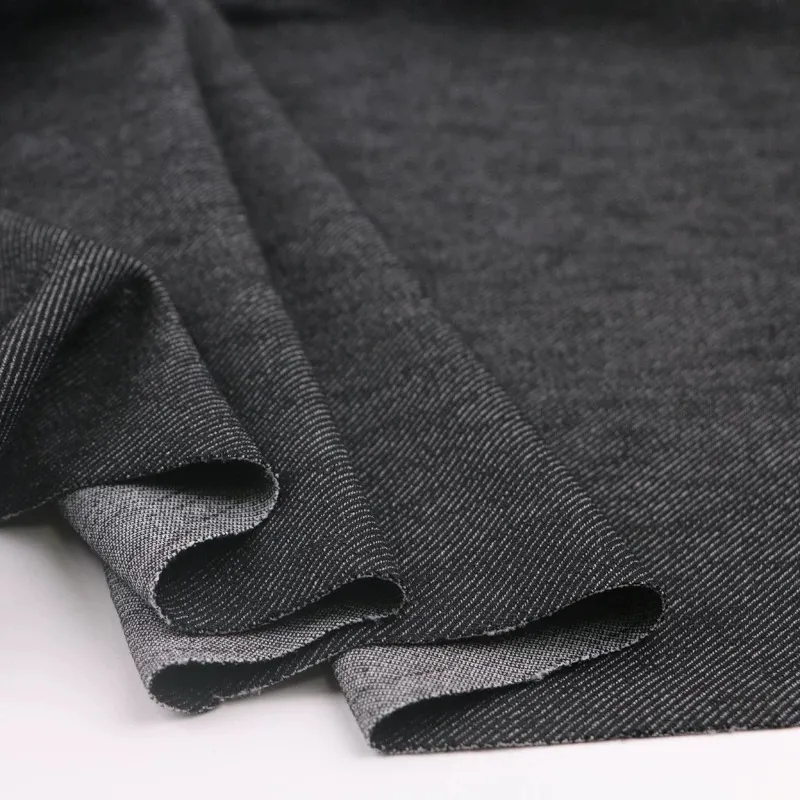Sulphur Black: Unmatched Versatility and Safety for Textile Innovation
Sulphur black is a cornerstone of modern textile dyeing, prized for its deep color intensity, washability, and cost-effectiveness. Widely used by sulphur black manufacturers, this dye has secured its place in applications ranging from casual wear to industrial fabrics, including the popular sulfur dyed denim. This article delves into its washability, safety aspects, and the fascinating chemistry behind its dyeing process, while emphasizing why kala ʻeleʻele sulfur are an essential choice for modern manufacturers.

How Washable Is Sulphur Black?
One of the key advantages of ʻeleʻele sulfur is its exceptional washability, a critical factor for consumer satisfaction. Garments dyed with kala ʻeleʻele sulfur exhibit excellent color fastness, maintaining their deep hues even after multiple washes. This resilience stems from the dye’s strong bonding with fabric fibers, achieved through chemical reactions during the dyeing process.
For items like sulfur dyed denim, which undergo frequent laundering, the durability of ʻeleʻele sulfur ensures that colors do not fade or bleed. This feature makes it a preferred choice for denim manufacturers aiming to deliver high-quality products that stand the test of time.
Health and Safety Considerations in Sulphur Black Use
The safety of kala ʻeleʻele sulfur is a top priority for manufacturers and end-users alike. Extensive research and testing ensure that modern formulations comply with stringent health and environmental standards. When used correctly, ʻeleʻele sulfur poses minimal risks, making it a reliable option for textile applications.
Manufacturers are advised to maintain proper ventilation and adhere to recommended safety protocols during production. This includes minimizing exposure to dye powders and using personal protective equipment. By sourcing from reputable sulphur black manufacturers, businesses can ensure they are using dyes that meet global safety standards, providing peace of mind for both producers and consumers.
Sulphur Black vs. Indigo Dyes: Chemical Mechanism Differences
While ʻeleʻele sulfur and indigo dyes both produce stunning effects, their chemical reactions during dyeing differ significantly. Sulphur black dyes undergo a reduction-oxidation process. Initially, the dye is reduced in an alkaline bath, transforming it into a water-soluble form that easily penetrates fabric fibers. Once the fabric is dyed, it is exposed to air or oxidizing agents, fixing the color permanently.
In contrast, indigo dyes rely on repeated dipping and oxidation cycles to achieve depth and uniformity. This method requires more water and energy, making ʻeleʻele sulfur a more sustainable choice for manufacturers seeking efficiency without compromising quality. The streamlined dyeing process of ʻeleʻele sulfur also minimizes waste, aligning with eco-friendly production goals.
Applications and Benefits of Sulphur Black in Denim
A standout application of ʻeleʻele sulfur is in sulfur dyed denim, where its rich black hues and versatility shine. Denim treated with kala ʻeleʻele sulfur offers diverse styling options, from solid black to faded finishes. Its compatibility with other treatments, such as enzyme washes and stonewashing, enhances the creative possibilities for fashion designers.
Additionally, ʻeleʻele sulfur provides superior wear resistance, ensuring that sulfur dyed denim maintains its aesthetic appeal over time. For manufacturers, its cost-effectiveness and ease of application translate into higher profitability, making it a staple in denim production.
Market Demand and Sustainability of Sulphur Black
The global demand for kala ʻeleʻele sulfur continues to grow as manufacturers prioritize cost-effective and environmentally friendly solutions. Leading sulphur black manufacturers are innovating to improve formulations, reducing their environmental impact while maintaining performance standards.
The dye’s low water and energy requirements during production make it a sustainable alternative to traditional methods, such as those used with indigo. This positions ʻeleʻele sulfur as a key player in the textile industry’s shift toward greener practices, meeting the expectations of eco-conscious consumers.
Sulphur black is a versatile, safe, and sustainable choice for textile dyeing. Its superior washability, chemical efficiency, and adaptability to modern manufacturing needs make it an invaluable resource. From enhancing the appeal of sulfur dyed denim to ensuring compliance with safety standards, kala ʻeleʻele sulfur remain a preferred solution for manufacturers worldwide. As demand grows, its role in shaping the future of textiles is undeniable.
-
The Timeless Art of Denim Indigo Dye
NūhouJul.01,2025
-
The Rise of Sulfur Dyed Denim
NūhouJul.01,2025
-
The Rich Revival of the Best Indigo Dye
NūhouJul.01,2025
-
The Enduring Strength of Sulphur Black
NūhouJul.01,2025
-
The Ancient Art of Chinese Indigo Dye
NūhouJul.01,2025
-
Industry Power of Indigo
NūhouJul.01,2025
-
Black Sulfur is Leading the Next Wave
NūhouJul.01,2025

Sulfur ʻeleʻele
1.Name: sulphur black; Sulfur Black; Sulphur Black 1;
2.Structure formula:
3.Molecule formula: C6H4N2O5
4.CAS No.: 1326-82-5
5.HS code: 32041911
6.Product specification:Appearance:black phosphorus flakes; black liquid

Bromo Indigo; Vat Bromo-Indigo; C.I.Vat Blue 5
1.Name: Bromo indigo; Vat bromo-indigo; C.I.Vat blue 5;
2.Structure formula:
3.Molecule formula: C16H6Br4N2O2
4.CAS No.: 2475-31-2
5.HS code: 3204151000 6.Major usage and instruction: Be mainly used to dye cotton fabrics.

Indigo Blue Vat Blue
1.Name: indigo blue,vat blue 1,
2.Structure formula:
3.Molecule formula: C16H10N2O2
4.. CAS No.: 482-89-3
5.Molecule weight: 262.62
6.HS code: 3204151000
7.Major usage and instruction: Be mainly used to dye cotton fabrics.

